The following table gives the distribution of students of two sections according to the marks obtained by them :
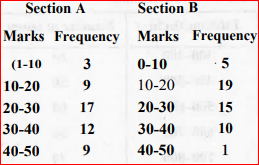 : Represent the marks of the students of both the sections on the same graph by two frequency polygons. From the two polygons compare the performance of the twosections.Solution in Punjabi
: Represent the marks of the students of both the sections on the same graph by two frequency polygons. From the two polygons compare the performance of the twosections.Solution in Punjabi
Step by step video & image solution for The following table gives the distribution of students of two sections according to the marks obtained by them : : Represent the marks of the students of both the sections on the same graph by two frequency polygons. From the two polygons compare the performance of the twosections. by Maths experts to help you in doubts & scoring excellent marks in Class 9 exams.
Topper's Solved these Questions
Similar Questions
In a particular section of Class IX, 40 students were asked about the months of their birth and the following graph was prepared for the data so obtained:
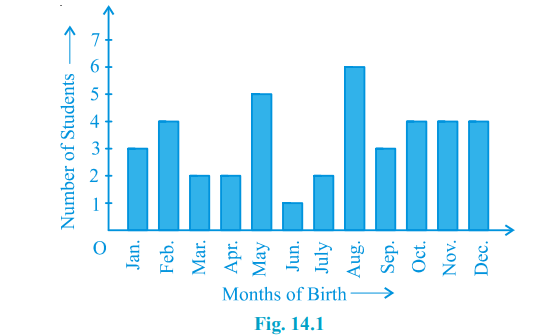 Observe the bar graph given above and answer the following questions:
(i) How many students were born in the month of November?
(ii) In which month were the maximum number of students born?06:15View Solution
Observe the bar graph given above and answer the following questions:
(i) How many students were born in the month of November?
(ii) In which month were the maximum number of students born?06:15View SolutionShow that each angle of a rectangle is a right angle.
03:07View SolutionMary wants to decorate her Christmas tree. She wants to place the tree on a wooden box covered with coloured paper with picture of Santa Claus on it (see Fig. 13.4). She must know the exact quantity of paper to buy for this purpose. If the box has length, breadth and height as 80 cm, 40 cm and 20 cm respectively how many square sheets of paper of side 40 cm would she require?
View SolutionThe following table gives the distribution of students of two sections according to the marks obtained by them. Represent the marks of the students of botht the sections on the same graph by two frequency polygon. From the two polygons compare the performance of the two sections.
02:11View SolutionFollowing table gives the distribution of students of sections A and B of a class according to the marks obtained by them.
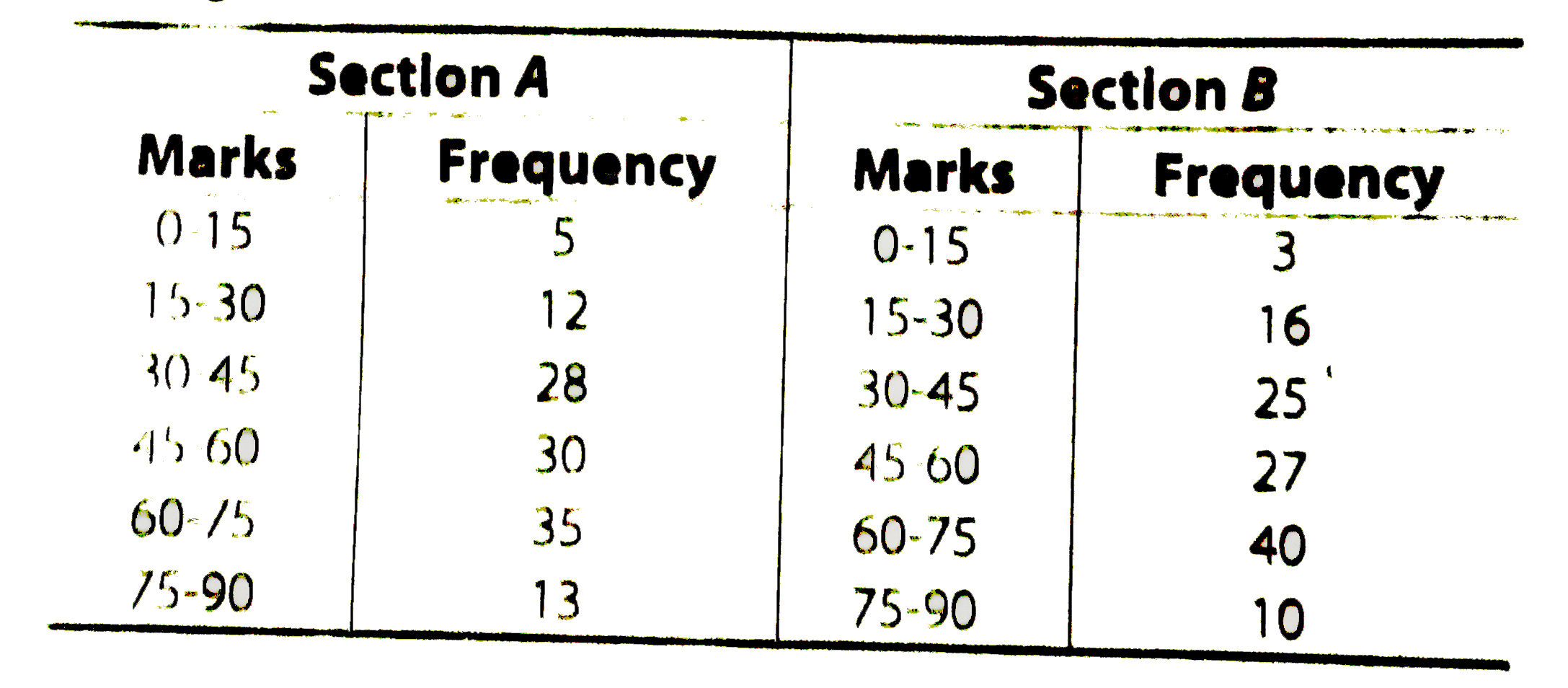
Represent the marks of the students of both the sections on the same graph by two frequency polygons. What do you observe?02:45View SolutionThe following table gives the distribution of students of two sections according to the marks obtained by them

Represent the marks of the students of both the sections on the same graph by two frquency polygons. From the two polygons compare the performance of the two sections.02:17View SolutionDetermine the point of symmetry of a regular hexagon.
05:41View SolutionMatch the following Column A to Column B
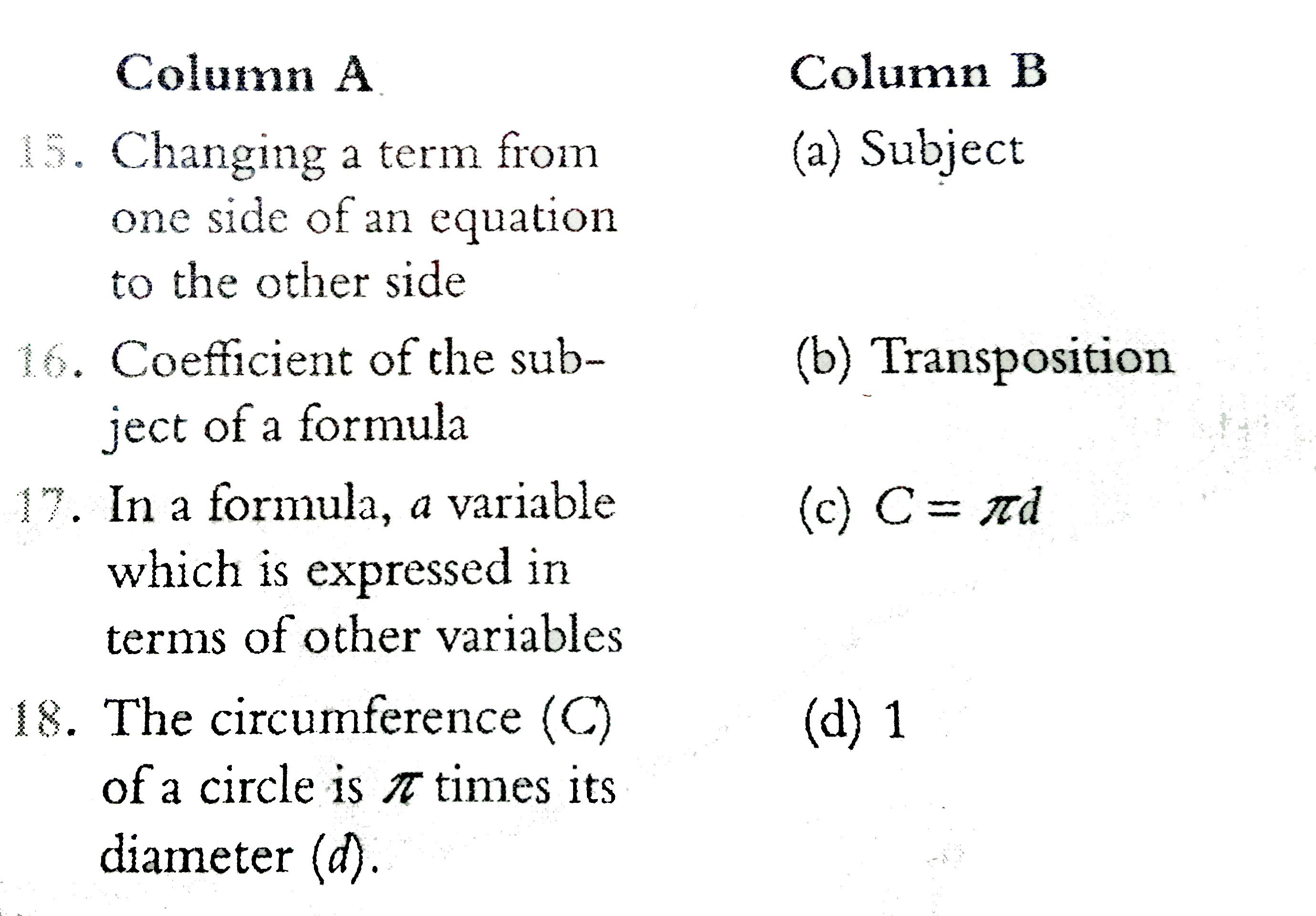 02:10View Solution
02:10View SolutionMatch the following Column A to Column B
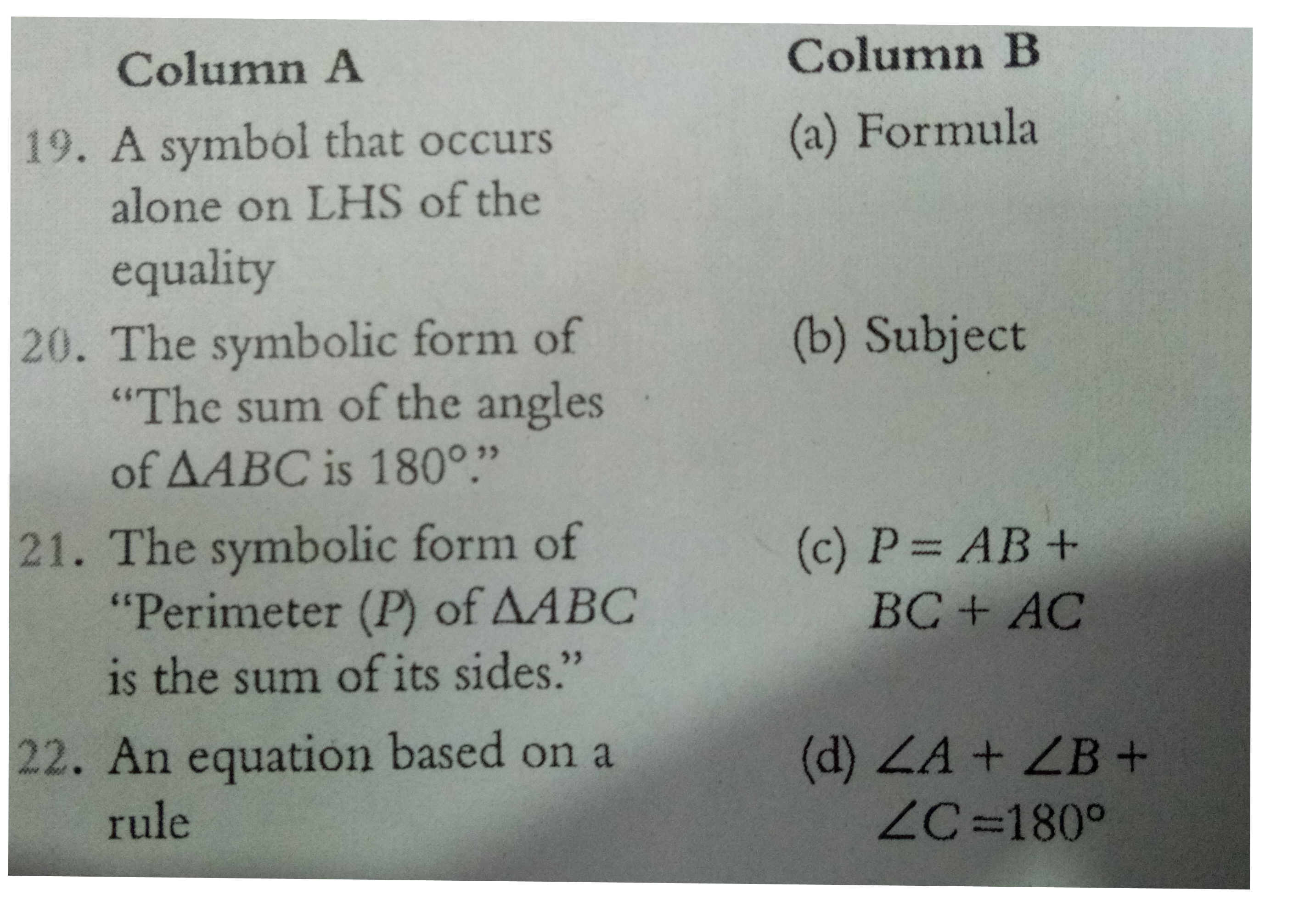 02:17View Solution
02:17View SolutionMatch the following Column A to Column B
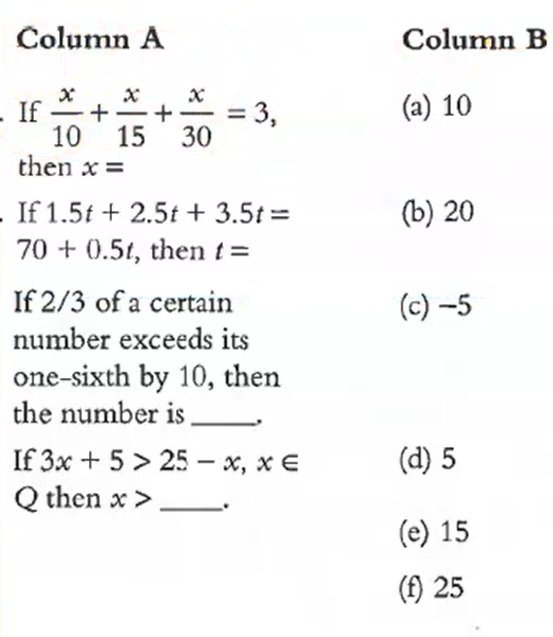 02:10View Solution
02:10View SolutionThe inequation represented by the graph given below is :
04:23View SolutionThe inequation that best describes the graph given below is _________
14:13View SolutionThe inequation that best describes the following graph is _________
09:13View SolutionWhich inequations represent the shaded region in the given figure
09:08View Solutionनीचे की दो सारणियों में प्राप्त किए गए अंकों के अनुसार दो सेक्शनों के विद्यार्थियों का बंटन दिया गया है :
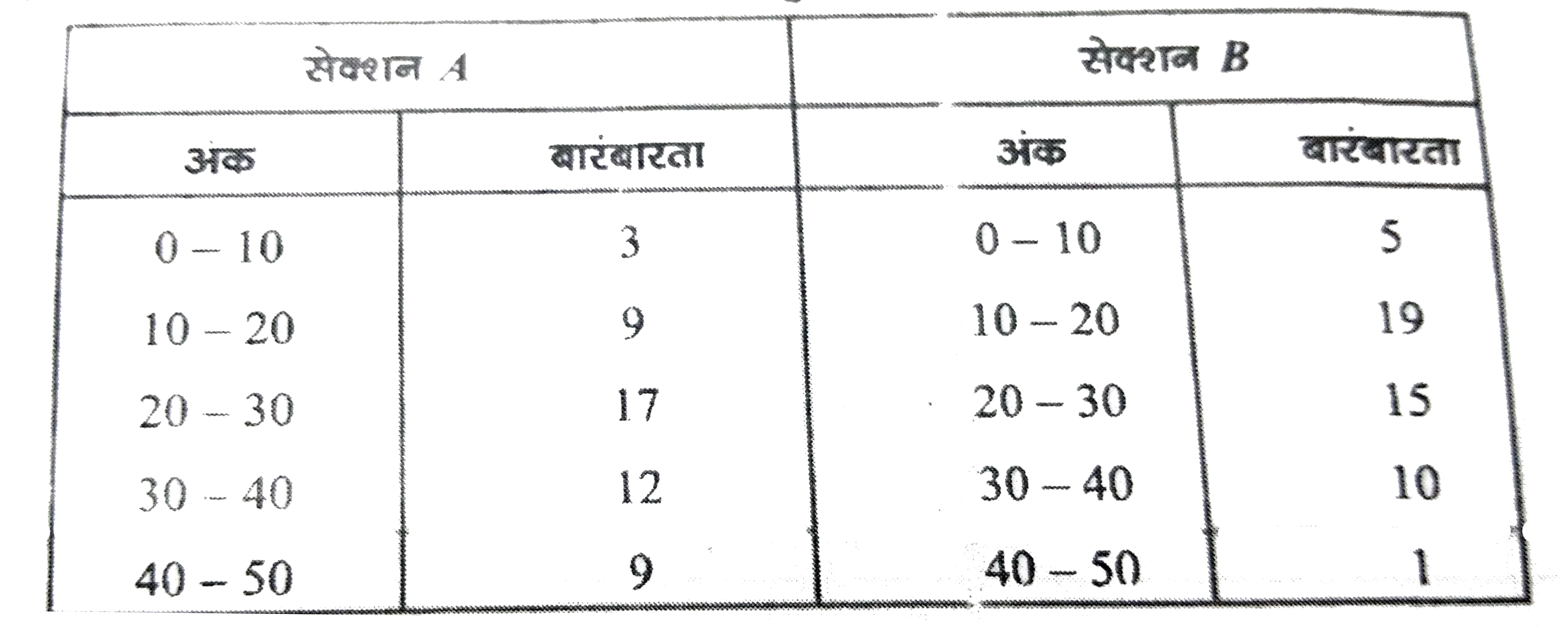
दो बारम्बारता बहुभुजों की सहायता से एक ही आलेख पर दोनों सेक्शनों के विद्यार्थियों के प्राप्तांक निरूपित कीजिए। दोनों बहुभुजों का अध्ययन करके दोनों सेक्शनों के निष्पादनों कि तुलना कीजिए ।06:02View SolutionThe following table gives the distribution of students of two sections according to the marks obtained by them :
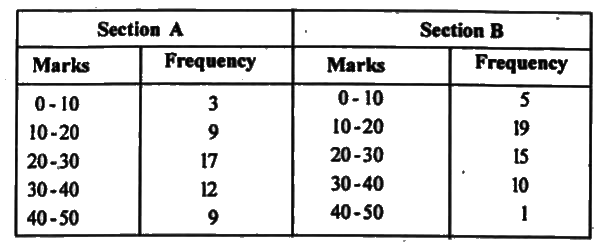
Represent the marks of the students of both the sections on the same graph by two frequency polygons. From the two polygons compare the performance of the two sections.13:57View Solution

